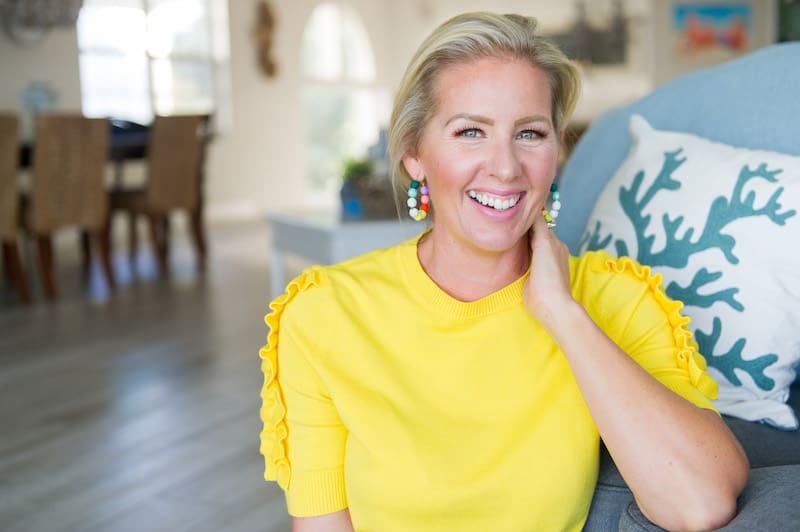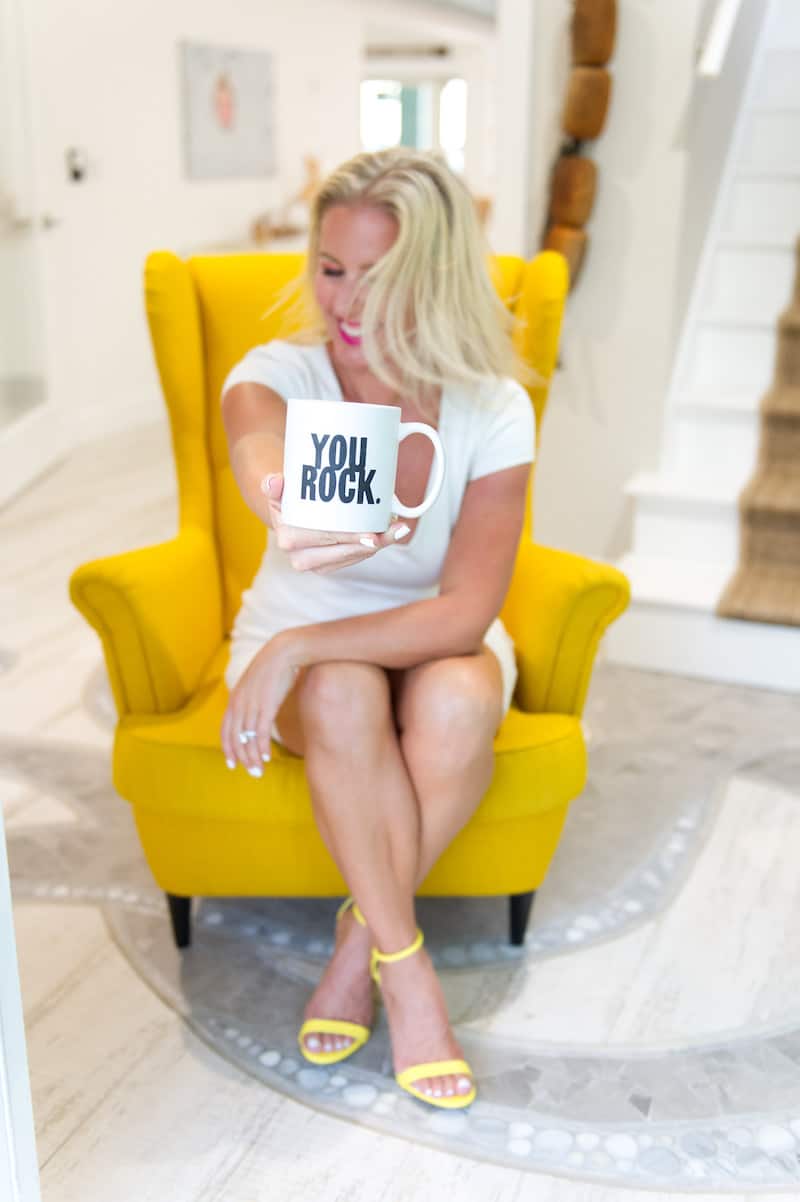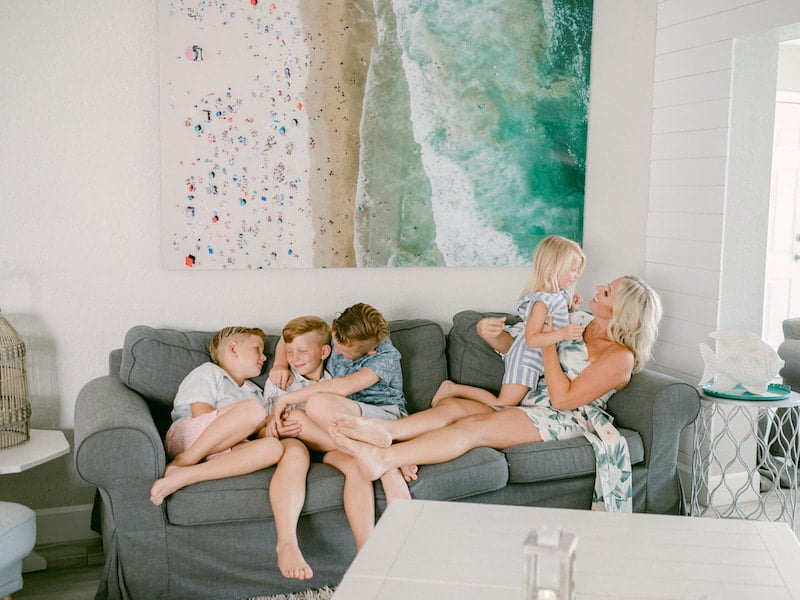Dry January: Put down the wine and drink in joy instead
Parenting: an intricate, gloriously chaotic web. Chaotic moments nudge parents toward the bottle: the wine; the beer; the whiskey. It’s especially true for women and increasingly so during COVID-19. Alcohol delivery: check. Pressures to look glam, raise perfect children, remain fit and rested, and have a handle on an everchanging context didn’t dissipate as social isolation emerged. Alcohol became a loyal friend—apparent on sites like TikTok. Initially humorous? Sure. Potentially lasting damage? 100 proof.
Janie Porter, former TV news reporter turned stay-at-home-mom to four kids (Sullivan, 10; Porter, 8; Kendall, 6; and Huntington, 3), shares how what started as wanting a reward (i.e. wine) after a day with bold kids devolved into familiar hangovers.
In time for Dry January, started in 2012 by British charity Alcohol Change UK, Porter provides perspective on nurturing a fulfilling life without filling the tumbler.

What are your thoughts on Dry January?
JP: Reevaluating your relationship with alcohol is always brave. There are no rules on how to do it and, if a 31-day pause starts the journey, just promise yourself today. Soon, you’ll proudly have a few todays under your belt.
When does drinking become a problem?
JP: It’s an issue when you feel it is—when it’s out of alignment with who you are. If numbing uncomfortable emotions is the intention, that’s problematic. Let go of alcohol-as-crutch and get to problems’ roots. Is there sadness? Feeling alone in a marriage? Left out of friend groups? Confused about what you’re doing in life? These are real feelings and valid issues. Listening to questions is key because life’s stresses aren’t vanishing.
I was coming home at 2 a.m. not remembering my night out—an issue. Needing alcohol to make things fun screams, “Reexamine!” I wanted my friend, alcohol, at the fun stuff. Our culture includes alcohol in everything. Check in with yourself; determine why you need alcohol to enhance events.
Why did you stop drinking?
JP: On 3/28/21, I could barely function. Hungover. I drank to escape sadness from an upsetting incident on 3/27. Throwing up in front of my kid, I thought, ‘I am so done with this.’ I saw that my love of drinking wasn’t getting me the thriving life I wanted.
Overdrinking is about fixing problems in the best way we know how. Our culture applauds it. Messages that “mommy needs a drink” are validated. The habit doesn’t work.

Have your social groups changed since you stopped drinking?
JP: Alcohol-centered friend groups went away. If drinking equals belonging, do you want belonging in that group? Thinking we’ll be the big bird in the room if we aren’t drinking is paralyzing. Realistically, no one cares. My closest friends are genuinely curious because they love me. I’m not stopping anyone’s good time. Wanting acceptance is innate. Still, I’d rather disappoint others by not drinking than disappoint myself in my journey.
Why was the day that you stopped drinking the first day of the rest of your life?
JP: I’m living and standing in my own power. Alcohol weakens that. Relying on alcohol to get through the day makes me a powerless victim. I don’t have the constant noise of ‘what am I going to drink next?’ I feel better and I’m proud of myself every morning. I’m enjoying the simple fun of just watching my kids. I’m dealing with emotions in lifegiving ways.
Why don’t you use the words alcoholic and sober?
JP: Labels hold people back from reevaluating their relationship with alcohol. Consider yourself curious enough to pause the relationship with alcohol and uncover why you can’t go without it.
What resources have helped you?
JP: I hired a Certified Professional Recovery Coach, Heather, of Ditched the Drink. Now, I’m also coaching. Eight months in, I’m not a certified life or recovery coach. I am a mother in the trenches, doing the work and walking alongside others on their journey to living with purpose and joy.
Not shaming past behaviors is helpful. Sharing my story is shedding the shame, which is frequently hidden. Telling your story is empowering.
Last Call
Women, disproportionately impacted by pandemic-related-challenges, are less likely to seek help for alcohol use. Dry January invites examining and journaling about patterns. For example, when do you crave alcohol most? Overdrinking is not a solution. A life filled with experiences you can remember, unlike the finest vintage, is priceless—100 proof.
Another Round:
- Information about Alcohol Use Disorder: https://bit.ly/3rOePdp
- Follow Janie: SheJustGlows.com/Coaching

All photos by The Dashing Ginger | Originally Published in January the 2022 issue of Tampa Bay Parenting Magazine.
More stories we think you'll LOVE:
- Moms to KNOW: Kristen Brown of TRIBE Seminole Heights
- Moms to KNOW: Carolynn Smith-Jones of Seven Marketing + PR


